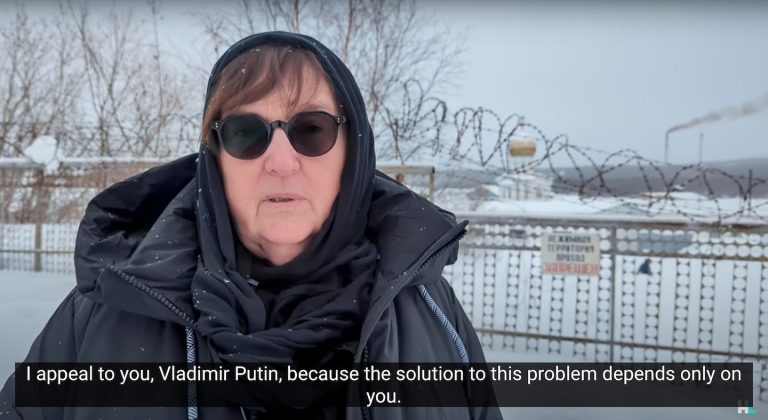Navalnaya traveled on Saturday to Polar Wolf Prison, just above the Arctic Circle, in the Yamalo-Nenets region, where Navalny died suddenly, and has since been locked in a Kafkaesque struggle with Russian authorities over his body.
Navalnaya's lawsuit was filed in the city court in Salekhard, the regional capital 33 miles from the prison.
On Tuesday, she stood outside the prison and recorded a video appeal to President Vladimir Putin, asking him to personally direct the authorities to release the body and allow her to bury her son.
In scenes reminiscent of Soviet authorities' treatment of families of political prisoners, Navalnaya was not even allowed to see her son's body, and her requests for information about where she was being held were refused.
Officials with Russia's Investigative Committee for Navalnaya and the family's lawyers said Monday that the body would undergo a “chemical” investigation for at least 14 days.
It's been five days, and I still can't see him; “They did not give me his body, and they did not even tell me where he was,” Navalnaya said in the video statement. He added: “I appeal to you, Vladimir Putin, that the solution to this issue depends on you alone. Let me finally see my son. I demand that Alexei’s body be handed over immediately so that I can give him a decent burial.”
Nearly 77,000 Russians signed a petition submitted by the legal rights group OVD-Info, calling on Russian authorities to hand over the body to the family.
Navalny's widow, Yulia Navalnaya, who on Monday pledged to continue her husband's work, wrote to Putin to request the release of the body, according to Navalny's team.
On Monday, Yulia Navalnaya accused Russian officials of poisoning her husband with a nerve agent, which led to his death, and of holding on to his body as part of a cover-up. Navalny survived a poisoning attack with a Novichok-type agent in August 2020.
After Navalny was poisoned, doctors in a hospital in the Siberian city of Omsk placed him in a medical coma, and the local authorities refused to allow his wife or his personal doctors to enter the ward to see him.
Hospital and security officials obstructed Yulia Navalnaya's efforts to evacuate her husband for treatment outside Russia. At that time, she turned directly to Putin, who allowed her to fly Navalny to Germany two days after he fell ill.
Putin has not mentioned Navalny publicly since the opposition leader's death on Friday. Navalny was widely seen as the president's strongest rival, but Putin made sure his name was never uttered.
However, the Russian president on Monday promoted several members of Russia's Federal Penitentiary Service, including its first deputy director, Valery Boyarinev, whom he granted the rank of colonel-general.
Since Navalny's death, Russian authorities have arrested more than 400 Russian citizens who laid flowers in his memory, registered the names of hundreds more, and removed piles of flowers from memorial sites.
In St. Petersburg, several young men arrested at memorials to Navalny were handed military summonses as they emerged from detention centers, according to Russian Telegram outlet RusNews, which posted a photo of one of the summonses on Wednesday.
Natalia Abakumova in Riga, Latvia contributed to this report.

